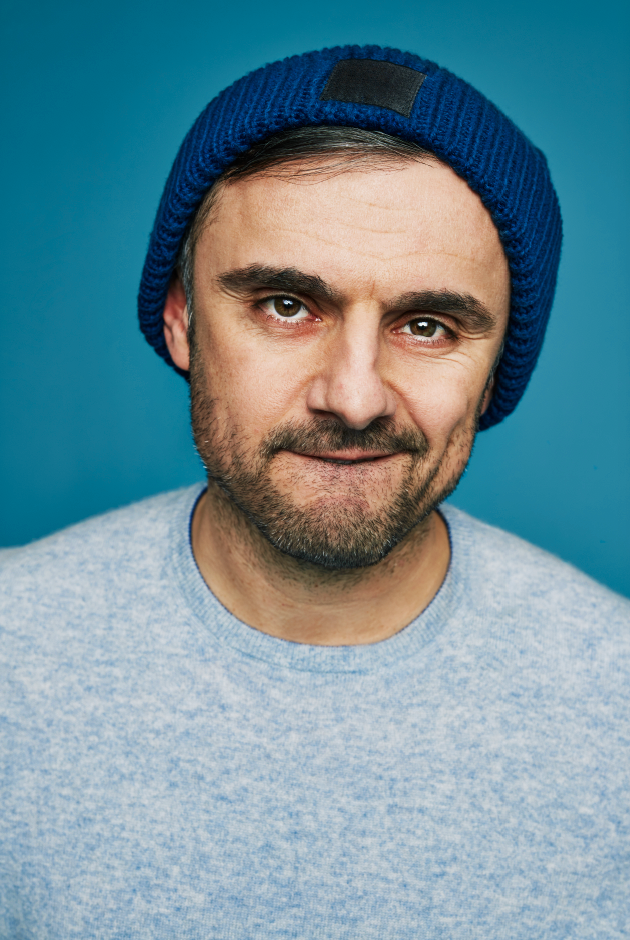How today’s entrepreneurs became society’s new rockstars – and the man leading the pack.
Written by Chris Metler
Photography by Francisco Garcia
Two comprehensive judgments tend to accompany a face-to-face encounter with Gary Vaynerchuk, the serial entrepreneur, chart-topping author, world-renowned speaker, and consummate internet personality. Or, as he’s been hailed: half man, half brand, half digital experiment.
The first will take shape mere minutes after the initial hello. It fittingly pertains to – you guessed it – the first impression itself. Here’s ours: what you see is what you get with this guy.
The charismatic Belarusian-American mover and shaker instantly comes off as every bit the unusually outspoken, forthcoming magnate and self-promoter he’s advertised to be. The guy celebrated business executive, Jack Welch, characterized as brilliant, loud, irreverent, generous, crazy, and kind. The one former Twitter CEO, Dick Costolo, acclaimed for having glimpsed the future of marketing. The one tastemaking megastars, like Dwayne Johnson, continue to champion in cutting through all the bullshit that can hinder one’s success.
The second? It materializes later. In the hours, days, even weeks following your actual introduction to him; when you start to appreciate the sheer magnitude of everything he’s pulling off, while realizing he achieves it all by employing compassion and authenticity. What’s more, he leads with those values. That’s easier said than done in an ultra-competitive frontier where indifference and untruth increasingly rule the day.
If any prevailing thread weaves together a connective composite of this iconic industrialist and social media maverick – from the disciplines of entrepreneurship and personal branding to his inherent gratitude for an immigrant upbringing and concentrated attempts at filling the empathy void – it’s this.
THE GODFATHER OF THIS MOVEMENT


Based on the idea that young entrepreneurs are the new aspirational heroes who stimulate how adolescents live – and help shape their norms and values – the soon-to-be-unveiled kicks constitute part of K-Swiss’ wider brand strategy. The objective? To tap into a budding infatuation with business leaders.
It’s an unprecedented collaboration. Contrary to past archetypal sportswear campaigns positioned around athletes or entertainers, the businessman-on-a-shoe effort marks the first of its kind. Call it a watershed juncture. The implications of this turning point suggest entrepreneurs have crossed the threshold into that exalted celebrity territory. LeBron James has a sneaker. So does Kanye West.
Speaking to us in a quiet corner at the Toronto sneaker launch, Barney Waters, K-Swiss’ global brand president, describes the groundbreaking partnership as an axiomatic fit. “[We] needed a new space. A new lane,” he says as a hoard of sneakerheads rush in to meet Vaynerchuk. “I reckoned if you were reading the tea leaves of culture, it suddenly became cool to be small and successful.” With that, Waters started to dwell on which ambassador could best bring this message to life. “It kept coming back to Gary. He’s almost like the godfather of this movement. I mean, who else could pull it off?”
Who else, indeed? As chairman and CEO of VaynerX, a USD $150-million-plus media holding agency that economic, entertainment, financial, political, and sports pundits alike deem one of the fastest-growing on earth, Vaynerchuk has revolutionized how people look at interacting with their communities. Best known as an unstoppable force in digital marketing and social media, he’s not only at the vanguard of calibrating the desires and expectations of a new generation that seeks to transcend the noise, but is showing the way, teaching by example, and making the truth obvious.
With five New York Times bestselling books to his credit – each tackling business, entrepreneurship, social media, and leadership head-on – his prolific media footprint further comprises his DailyVee vlog, the instructional #AskGaryVee advice show, and The GaryVee Audio Experience, ranked one of the top 10 business podcasts on iTunes.
The content he pumps out doesn’t just get ravenously consumed by his diehard devotees, it’s treated as gospel. He’s also served as a panelist on Apple’s first original series, Planet of the Apps, in addition to amassing upwards of six million combined followers on Instagram and Twitter as well as over 100-million views on YouTube.
Undeniably, Vaynerchuk is a part of a new wave of bonafide celebrities that have built their repertoire not on blockbuster Hollywood hits or championship titles, but on entrepreneurial performance – and he’s at the front of the pack.
THE NEW ROCKSTAR
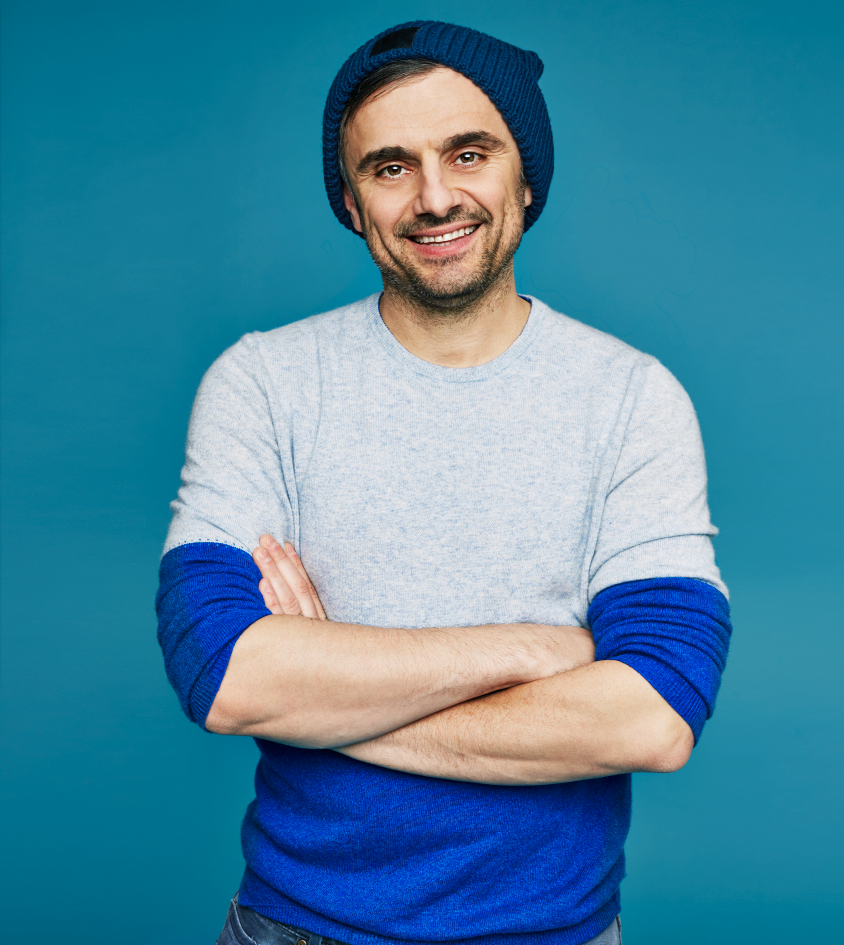

“Everybody thinks that’s their way out,” he posits. “Yet 99 percent won’t have the talent to produce a business that achieves the kind of revenue they are aspiring to.” This is why he scoffs when he overhears would-be bigwigs narrowly proclaim they’re going to build a billion-dollar company, while pooh-poohing a million-dollar one. The irony is most will never come within sniffing distance of establishing a business that does a half-million bucks in revenue.
With entrepreneurship becoming so trendy, it’s paved the way for a proliferation of what he categorizes as wantrepreneurs: people who yearn to be an entrepreneur, especially those who never realize this ambition. And frankly, Vaynerchuk wishes they’d start identifying themselves as such before they squander a lot of time and money. Or, more distressingly, compromise the reputation of bona fide entrepreneurs the same way ambulance chasers besmirched our opinion of lawyers, or underhanded brokers who tarnished how many feel about real estate agents today.
To that end, he makes no secret he’s quite concerned about the post-game of this era. Of people getting into depressions or worse, when they hit rock bottom. Because, unlike other métiers, once you broadcast you’re an entrepreneur, everyone takes notice. “From your parents to your friends, everybody will watch you fail,” he reveals. “You have to be very emotionally strong to deal with that loss. You get fired from a job, you blame the boss. Your business fails, it’s your fault and there’s no escaping it.”
However unforgiving this candid take seems, Vaynerchuk is careful to communicate that it’s never meant in a look, I’m good at this and you suck kind of way. He derives zero satisfaction from having to tell anyone out there they won’t succeed. “It’s just something we need to talk about so we’re prepared for the ramifications of the glorified entrepreneurial journey.”
‘”INFLUENCE”
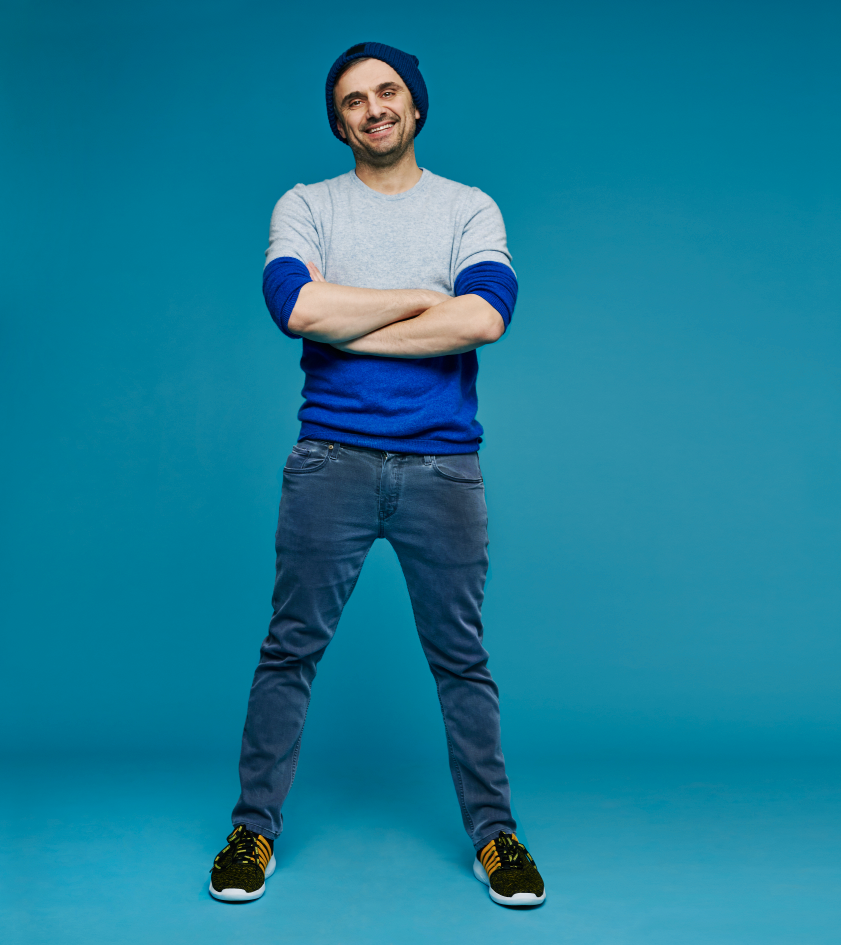

Vaynerchuk asserts the interpretation should indicate somebody who has an impression on the public at scale, then creates an action. “Being influential means when you do something – you say something, wear something, write something, act on something — other people are affected,” he simplifies. “They want to be inspired to also do that, or some variation thereof.”
If the seminal alliance with K-Swiss weren’t proof enough, a painless Google probe of his name will corroborate how effortlessly he meets his own criteria for eligibility. Give it a whirl. You’ll be met with pages of search results spanning more than a decade. Recent headlines spotlight his perspective on the opportunity in eSports, his acquiring a huge stake in a cannabis-focused marketing firm, his views on whether Facebook is a force of good or evil, his emergence as the ad industry’s lightning rod, and then some. Older entries call attention to his prediction that VR will arbitrage the Internet, his social media strategy and how it is changing the way we do business, and his attitude towards the medium’s multiplier effect.
The takeaway? Whenever Vaynerchuk pipes up or plugs in, he moves the needle. But in assessing the debate engulfing thought leadership – that if you’re legitimately influential, it needn’t be your job title – the habitually blunt marketing motormouth ain’t as hard-bitten as you might expect.
In his 2009 Crush It!: Why NOW is the Time to Cash In on Your Passion treatise, he advocated that developing your personal brand was key to monetizing your passion online. That it’s the same as living and breathing your resume. Suffice it to say he appreciates the extent to which young adults are capitalizing on editing YouTube videos, posting on Instagram, tweeting 280 characters, and snapping on Snapchat as a viable professional path.
So rather than contribute to one segment razzing the next, he instead guides fledgling upstarts in making sense of the personal branding platforms available today – and speculates on where they’re headed tomorrow.
WANT SOMETHING? GO OUT AND GET IT


He affirms the greatest thing to ever happen to him was being an immigrant who came from absolutely nothing. “When you begin at zero, you’re eliminated from the entitlement that’s usually a weakness.” He argues that starting from the very bottom gave him — and will offer anyone else – a leg up on learning work ethic and humility.
Born Gennady Vaynerchuk in Babruysk — a city in the Mogilev region of eastern Belarus — the young expat came to live permanently in the United States in 1978. He was one of eight family members camped out in a studio-apartment in Queens, New York, before eventually relocating to New Jersey. Money was tight and, as a newly-arrived non-native, superior education was virtually unattainable. By the time he was six, seven, eight years old, it registered that if he wanted something, he had to go out and get it. “Tasting little, having not much, it taught me very early on.” Incidentally, he banked thousands of dollars trading those baseball cards.
After the lemonade-stand, he got involved in his family’s retail-wine business. As a college graduate, he assumed its day-to-day operations. Rechristening it Wine Library, he instituted online sales and debuted a daily wine webcast. With these tools and his calculated pricing, in a span of seven years, Vaynerchuk impressively took Wine Library from USD $4-million to USD $60-million in annual earnings. Then, he stepped away to focus on VaynerMedia, the digital ad agency he co-founded with his brother AJ.
In providing social media and strategy services to Fortune 500 companies – Amazon, Anheuser-Busch, Diageo, General Electric, JPMorgan Chase, Mondelez and PepsiCo notably amongst them – VaynerMedia had grossed USD $100-million by 2016. Vaynerchuk proceeded to parlay this into untold personal speculation as an angel investor and through buying shares in Facebook, Snapchat, Twitter, Uber, and many more startups.
By 2017, he introduced Gallery Media Group – a digital publishing branch concentrated on the intersection of culture, style, music, and sports, all through the lens of entrepreneurship – around the same time his VaynerSports outfit set out to disrupt the cozy sports representation market by signing a formidable NFL first draft class. Later that year, his personal net worth was tallied in the ballpark of USD $160-million.
There have been triumphs and defeats along the way, though thanks to his immigrant mindset, which entails being inherently braced for an alternative worse than failure, he unflinchingly regards himself as the person with the most upside in an open marketplace. He’s the scrappy underdog who welcomes coming up short fast and often, ready to absorb 10,000 bone-shattering blows prior to something good developing. He upholds this attitude as “easily one of the two or three most important variables to who I am and how I roll.”
Over and above that, despite having to acknowledge the level of hate and fear in the system, the self-made multimillionaire has gone on record to promote the numerous opportunities available for immigrants. To say it’s better now in North America for an immigrant than it was when he landed. That the establishment no longer needs to be relied upon to give them a shot. That the Internet can be counted on. That nobody can stop anybody in this environment.
KINDNESS AND KARMA
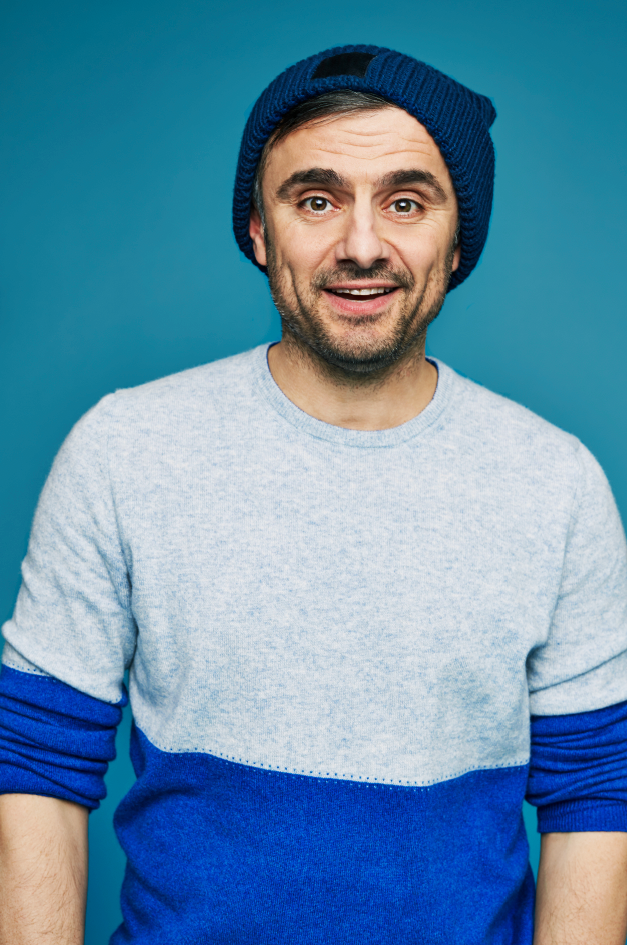

He’s a no-nonsense sort. That’s for damn sure. This fiery spirit was on display from start to finish of the Generation Now lecture he just wrapped. At one decisive moment, he had those under 30 years of age get out of their chairs, then matter-of-factly told them:
One of my least favourite things in society right now is the demonization of youth and saying millennials are lazy and entitled. That’s straight fuckin’ bullshit. Because for all of us sitting, 90 percent of our friends were fuckin’ lazy, too. However, on the flip side, here’s my biggest concern for everybody who is standing. Everybody standing has one fatal flaw in the game of entrepreneurship — and it’s not your fault, by the way. Your fatal flaw is you haven’t been punched in the fuckin’ mouth yet.
He was speaking figuratively, referring to how those who’ve reached young adulthood in the early 21st century haven’t had to endure perils like the early 2000s recession and 2008 economic meltdown. Still, his unfiltered, straight-shooting slant – anchored to the advancement of self-awareness and voicing truths that make most uneasy – can be regarded as harsh, extreme or even conceited.
For his part, he’ll admit that one of the main reasons he acts like a “big shot” is because he wants kids to be fans of his. Because if he’s cool, then they’re not talking about Ferraris and gold watches. They’re talking about hard work, humility, kindness, and paying it forward. “Karma is practical. Being the good person is good,” he colourfully pronounces. “Not because it’s a tactic, but because it’s right. Because we’re humans. Does it lead to people saying nice things about you? Of course!”
However, his unapologetic bedside manner belies his biggest insecurity: being disliked. Believe it or not, he cares a great deal about what people think of him. He attributes this worry to his ability to share the feelings of others. This higher level of empathy empowers Vaynerchuk to comfortably construct mutually beneficial relationships. For one, he boasts tremendous retention across the multiple businesses he’s built, owing it to actually knowing what his 800-plus employees worldwide are thinking and caring about.
To be a great leader, he insists, you have to be a great listener. And by honing empathy’s phenomenal power – the capacity to comprehend another party without them explicitly stating a word – he’s turned prospective clients into active ones, not to mention almost anyone into a friend.
It’s a personality trait which proves both atypical and indispensable in equal measure, particularly in this present-day period of dishonesty and deception. Which definitely makes it worth deliberating if more businessmen and -women out there would benefit from following his lead. To find their humanity and be as much their company’s head of HR as they are its CEO. To recognize that company culture stems from the top.
Epilogue
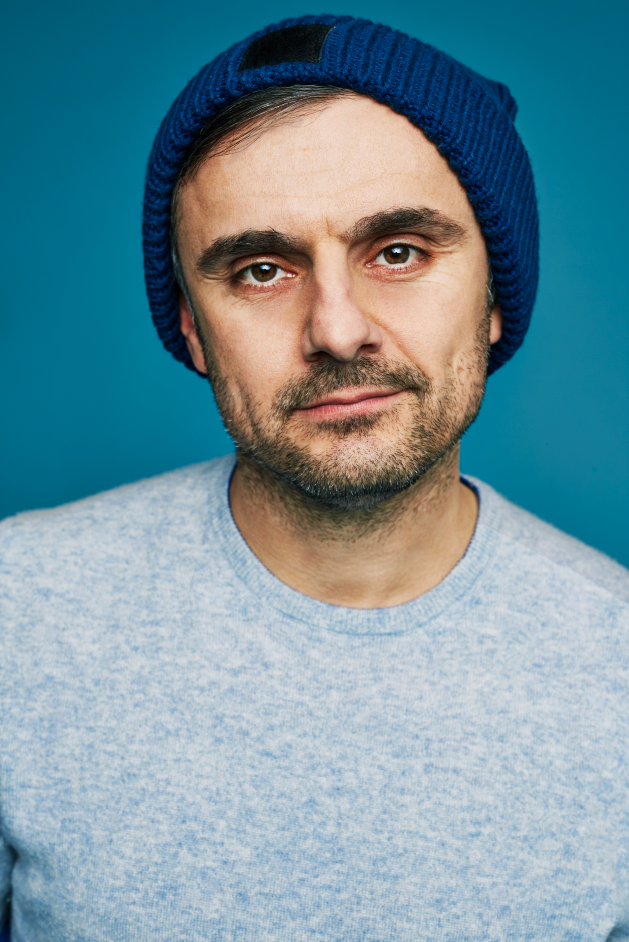

But in a crowded field where the activity of setting up a business and taking on risks in the hope of profit has become all the rage, and in which entrepreneurs themselves are viewed as rockstars, it’s doubtful his audience or so many of his contemporaries would put him ahead of the pack – and make no mistake, few hesitate to – if he didn’t back it up.
If he didn’t wake up before everybody else and work into the night. If he didn’t prioritize a commitment to service, a desire to provide value, and a love of teaching. If he didn’t start slow, start small, build gradually, and build smartly. If he didn’t live up to his mantra that this business has to be your entire life, or it will die.
Rest assured: Gary Vaynerchuk walks the walk, too.


